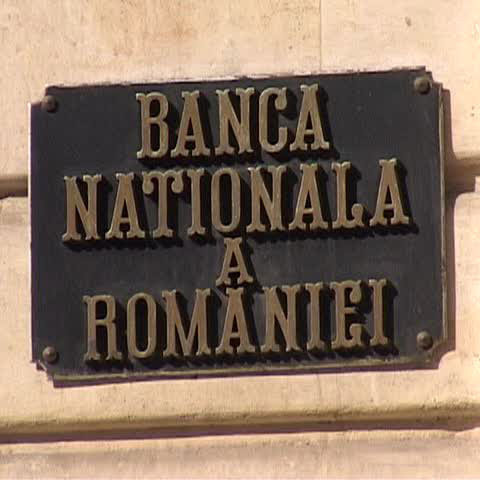POLL - Romania's central lender to slash key rate to 8.5%, on economic contraction, deflation
The strong contraction of Romania's economy will lead to a cut of the benchmark rate to 8.5 percent during the central lender's monetary policy session on August 4, following the deflationary trend and the leu's stability, analysts deem, betting also on the same level for minimum mandatory reserves.
"Two weeks ago the central lender (BNR) governor Mugur Isarescu said
the economy's adjustment is strong and it could become excessive. The
governor was previously optimistic about the economic perspectives and
talked about an economic growth in 2009, even at the beginning of June.
The latest statements suggest a change in perception and could be a
signal for a more aggressive cut during the August 4 meeting but also
for further slashes in the following monetary policy session," says the
senior economist of ING Bank Romania, Nicolae Alexandru Chidesciuc, who
expects BNR to cut the key interest rate from 9 percent to 8.5 percent
at its meeting next week.
However, Chidesciuc thinks BNR should
continue with a prudential policy, avoiding aggressive interest rate
cuts, as the fiscal policy "raises question marks", but believes the
central lender will reduce the benchmark rate to 8 percent by year-end.
A slash in the benchmark rate could also be supported by the
deflationary trend, as inflation could reach this year's low in July,
below 5 percent, added Chidesciuc, saying that there are however some
risks starting with August due to a bad agricultural year and to the
fall of the national currency.
Head of the research department at Volksbank Romania, Melania Hancila,
estimates also a cut of 0.5 percentage points in the monetary policy
rate for next week, on a powerful contraction of the economy and on the
deflationary trend, but does not believe BNR will operate successive
interest cuts by year-end.
"I don't see successive slashes of the benchmark rate by year-end as
this would put pressure on the exchange rate. The central lender will
operate another interest cut but will leave things unchanged at its
last monetary policy session," declared Hancila for NewsIn, adding she
sees the key rate at 8 percent for the end of the year.
BCR's chief economist Lucian Anghel counts on a key interest rate slash
to 8.5 percent during next week's monetary policy session, also
anticipating further cuts by year-end.
"I see a very good result regarding inflation, especially because there
is an agreement with the European Commission (EC) and the International
Monetary Fund (IMF) that stipulates keeping control over salaries,"
said Anghel, who does not overrule cuts regarding minimum mandatory
reserves as well.
Laurian Lungu, managing partner at Macroanalitica, estimates a more
aggressive slash of the benchmark rate, of 0.75 percentage points,
given the current economic status and deflationary trend.
Regarding the minimum mandatory reserves (RMO), Lungu says BNR will
most probably want do adopt a prudential policy, but the economic
conditions could justify a new cut of the minimum reserves both in lei
and in foreign currency.
Lucian Anghel also thinks the central lender will keep the minimum
mandatory reserves at their current level, but expects other cuts in
the following sessions, depending on how Romania will fulfill the
external financing agreement with the EC and IMF.
"I don't believe such measures of relaxing the monetary policy would
put pressure on the leu as any decision that might lead to an economic
revival is important for the leu's evolution and helps to strengthen
the national currency," explained Anghel.
At the same time, Chidesciuc expects BNR to keep the minimum mandatory
reserves constant so as to evaluate the impact of the similar decision
taken on June 30, but he thinks some other cuts will be needed for
passives in lei to see any impact on lending.
The central lender's managing council will meet on August 4 for its sixth monetary policy session this year. Since the beginning of 2009, BNR slashed the key rate by 1.25 percentage points, from 10.25 percent to 9 percent per year.
The central lender also reduced the minimum mandatory reserves of lenders from 18 percent to 15 percent for passives in lei and from 40 percent to 35 percent for passives in foreign currency and cut to zero the rate of minimum mandatory reserves for passives in foreign currency with residual maturity larger than two year.

